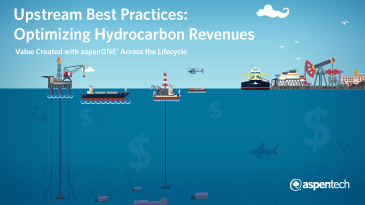How does a silent auction for sports memorabilia fit into a serious talk on the current state of the energy industry? At the recent “State of Energy” luncheon organized by Shale Magazine in Houston, these two elements came together through the connections of magazine President Kym Bolado.
It was an exciting and informative day, and I’ll share a few of the highlights.
Ryan Zinke: Energy and Politics
The keynote speaker at the July 18 forum was former U.S. Secretary of the Interior Ryan Zinke, always a draw with an energy audience and a great choice for this event. In addition to his powerful personal presence and charisma, Zinke is a great communicator with something to say.
As the 52nd interior secretary, Zinke followed a number of famous figures in this high-profile position, namely Harold Ickes in the 1930s and 1940s and Stuart Udall, Walter Hickel, Cecil Andrus and James Watt in the more recent past. The job is frequently and unavoidably a lightning rod for controversy, due to the broad scope of governing public lands that are rich in both economic and natural resources, and at the center of political tugs-of-war between energy, minerals and the environment.
Zinke certainly didn’t shy away from that as he held court in front of a knowledgeable and varied audience, which encompassed independent oil and gas producers, experienced energy leaders in Texas, representatives of both majors and suppliers, and a healthy complement of students anxious to understand their opportunities in the energy field.
Amidst some wide-ranging remarks, Zinke had some concrete and strong messages to convey about the importance of “energy dominance” on the international and economic stage. Beyond each individual player’s specific business interests, the collective result — namely, the U.S. as an oil and gas exporter —puts the country in a strong geopolitical position. This changes the overall equation of what is important in how the U.S. can deal with unsavory international players, and consequently more people are thinking of energy production economics, the supply chain and the value chain in the context of enabling these realities.
Zinke has a uniquely personal, earnest and compelling view on this. As a former Navy Seal and leader for the military in the Middle East, he makes the point that, “I’ve seen people fight and die. There are good reasons to have to send people to fight — energy should never be one of them. If we can produce more energy in the U.S. why would we put ourselves in that position?”
I found this both heartfelt and a strong way of conveying an important element of the U.S. energy development market. In fact, as I later mentioned during the technology panel I participated in, digital technology is a key enabler to accelerating the timeframe and reducing the costs for taking oil and gas from appraisal to production to market.
Zinke further talked about the real cost and sustainability scoreboard for oil and gas, vis a vis solar, wind and other renewables. I agree with him that wholesale use of public lands for deploying solar farms is, on balance, arguably at least as disruptive environmentally as is oil exploration and production (under the right conditions).
Zinke’s closing remarks acknowledged the march of technology in the oil and gas sector. The digital transformation that I would later be talking to the audience about (together with Chevron’s Michelle Pflueger) is an area many are still learning about. Zinke, who comes at it from a practical and operational viewpoint, cited cybersecurity as a key focal point.
As he put it, “Technology is making many things easier and cheaper in the oil patch. It’s automating many things. Also, though, it’s adding a point of vulnerability: cyberattacks. Cybersecurity will become a key focus.”
We certainly agree with that at AspenTech and are heavily engaged in making sure our operational and data-based systems are always secure. (Look for more on that topic in a future blog that I’m writing with our head of product marketing, Sr. Vice President Lina Liberti.)
David Porter: Sustainability
Also at the State of Energy luncheon, Kym Bolado introduced me to David Porter, the former Texas railroad commissioner who has created an organization called the 98th Meridian Foundation. Porter is relatively soft-spoken, but very clear on his interests and direction. He created this foundation to really look at the same energy-environment nexus that Zinke administered as interior secretary.
98th Meridian is looking at water in Texas, trying to find creative and collaborative solutions that satisfy both the water needs of the energy industry as well as the needs of rural Texas and the varied Texas environment. Or, as he puts it, they are “improving on what makes Texas great.”
This is where we get to the silent auction of sports memorabilia. The signed photos and jerseys were being auctioned to benefit the 98th Meridian Foundation. If you are interested in learning more about the organization or reading Porter’s white paper on water disposal and injection, visit 98thmeridianfoundation.org.
Thanks to Shale Magazine editor David Blackmon, as well as Kym Bolado, for persuading me to join this truly inspired and interesting group of participants!
To learn more about how energy companies can achieve new levels of operational excellence, check out our recent executive brief, Next-Generation Operational Technologies Enable the Smart Enterprise in a Changing World.






Leave A Comment